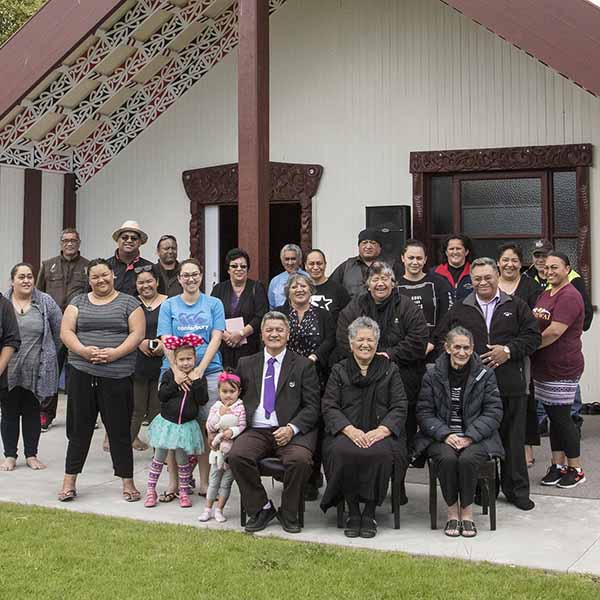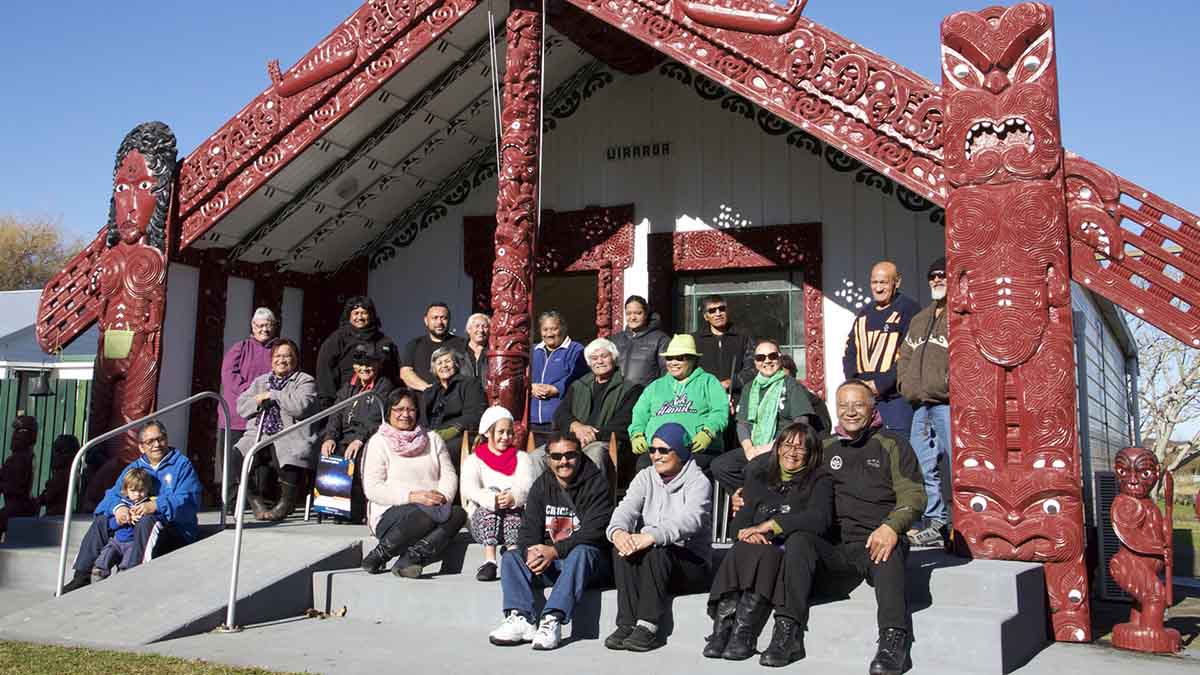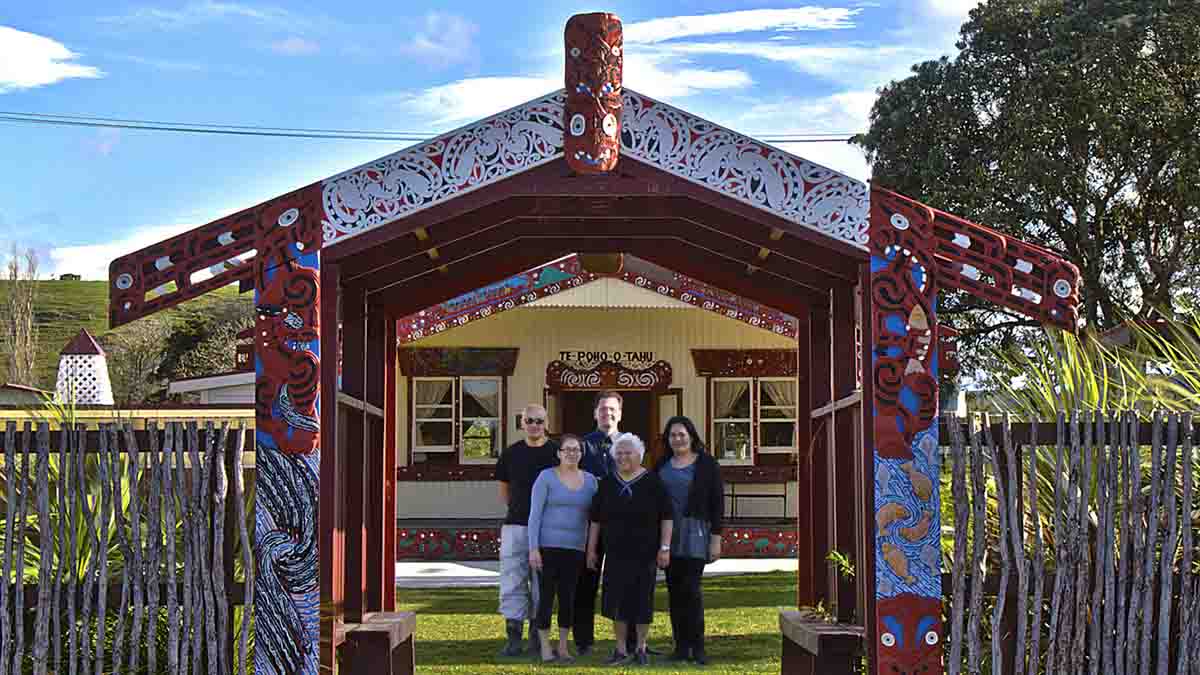Pupuaruhe (Toroa) Marae
Education has been a force for change at Pupuaruhe (Toroa) Marae in Whakatāne, showing how targeted iwi development programmes can empower individuals and strengthen hapū and their marae.
Toroa has been engaged in iwi development courses through Te Whare Wānanga o Awanuiārangi since 2004. But four years ago, the hapū Te Patuwai pinned its future to a more formalised wānanga education strategy.
In 2013, Te Patuwai made a conscious effort to pursue a wānanga strategy through its connection with Awanuiārangi, Puti Koopu said.
“We had a longstanding relationship with the wānanga, and because of this we knew Awanuiārangi could support our endeavours.
“The most important outcome of engaging with education in this way has been the ability of the marae to cater to its peoples’ need to revive, rejuvenate and maintain its ways and values – and to pass this on to our future generations in a platform that suits us as Patuwai.
Awanuiārangi brought us programmes that can be delivered for and with our people, on our marae.”
Five hapū members who began with Level 1-3 foundation studies have completed their final year of the Bachelor of Mātauranga Māori degree and are expected to graduate in 2017. Another two people are in their final year of that degree programme. Puti believes most of these students would never have attempted degree-level education if not for the support of Awanuiārangi and their marae. Other whānau have enrolled in other Awanuiārangi programmes, including Te Tohu Paetahi Ako (Bachelor of Education), Bachelor of Environment Studies, Bachelor of Nursing, and five have graduated from the Masters programme with two of those going on to enrol in the doctoral programme.
At hapū and marae level, the results speak for themselves.
“We have had between 80 and 100 koroua, kuia, pakeke, rangatahi, taiohi and mokopuna participate in iwi development courses,” Puti says. “If I were to summarise what they got out of their study, I would not hesitate to sum it up in three words: Whanaungatanga, Whakapapa, Tikanga.
“Whanaungatanga underpins the programmes that Patuwai has engaged in under the iwi development programmes, and that has in turn strengthened whanaungatanga in everything we do, in every activity that brings our hapū back to the marae, whether it is birthdays or tangihanga.
“We started with foundation courses to build pathways to higher learning. The subjects studied were aligned with our needs as a marae, which most urgently were to ensure we retain and maintain capabilities and capacity going forward.
Each student benefits from wānanga education in many different ways as an individual, but the collective impact of this personal growth and development has also been transforming for whānau, hapū, iwi.
“Our overarching strategy as a hapū is to stabilise our capacity and capability to fulfill our marae obligations as pae tapu, kaikaranga, kaiwaiata. Wānanga education is helping us achieve that aspiration, and also giving us confidence to be who we are and confidence in how we do things.
“Are more people involved and participating in marae activities as a result of the programme? Most definitely. As an example, recently two kaikaranga were kirimate and unable to call. Two of the Bachelor of Mātauranga Māori students stood in their place. A further example would be the increase in the knowledge and expertise of the hapū in raranga as a result of making piupiu for the kapa haka – both activities a consequence of wānanga.”
Toroa Marae plans to continue to offer programmes “that our people deem important to us”.
“We will continue to pathway from foundation courses to Bachelor degree programmes and higher, to continue to ensure we are doing all we can to maintain our pae tapu and our knowledge base regarding taonga like whakapapa, tikanga, te reo, waiata koroua, to build and support the capacity and capability of our hapū."

Whānau of Pupuāruhe marae (Toroa)
Kimihia he huarahi ako
What can you study?

